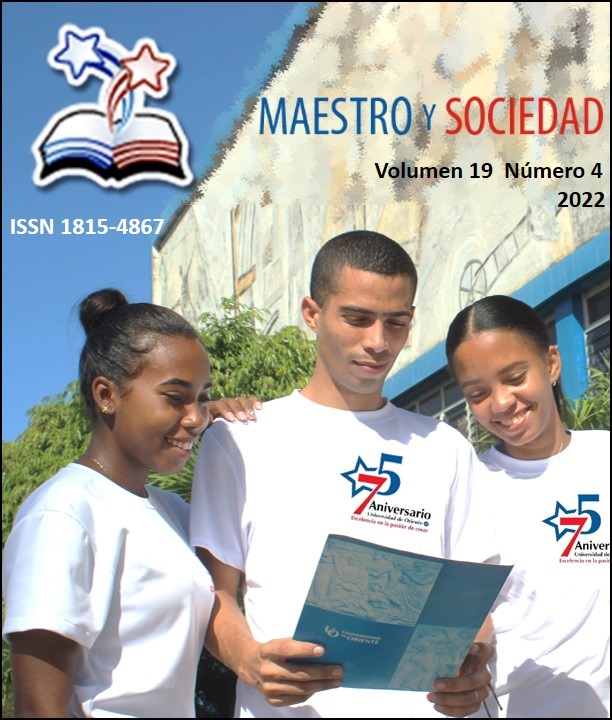Gamification of the formative evaluation process of students in the area of language and literature
Gamification of the formative evaluation process of students in the area of language and literature
Keywords:
Gamification, formative assessment, language and literatureAbstract
Gamification is an innovative strategy that allows learning by playing, in recent years great changes and transformations have been generated in educational processes. This research aims to: Analyze the Gamification didactic strategy to improve the process of formative evaluation in the area of language and literature with children in the seventh year of secondary basic education. As methods, it uses the qualitative-quantitative approach in an exploratory, descriptive work. and field, the study of the techniques used in the instruments, surveys of seventh grade students and their teachers with the purpose of innovating the traditional practice in their way of evaluating. Improvement was verified through a training process, the formative evaluation from the contents of language and literature.
References
Campaña, J., & Manzano, M. (2019). Universidad Técnica De Ambato. Repo.Uta.Edu.Ec, 130.
Claudio, I. N. G., Guevara, F., Msg, V., Marco, I. N. G., Marín, A., Msg, G., … Msg, M. (s.f.). Tecnologías de la Información y Comunicación. (s.e.).
Estebaranz, J. M. A. (2017). La evaluación de los aprendizajes. Problemas y soluciones. Profesorado, 21(4), 381–404.
García Gallegos, K. H., Sarmiento Berrezueta, S. M., & Rodríguez Saif, J. M. (2017). Evaluación formativa permanente y su tendencia histórica en el Ecuador. Didasc@lia: Didáctica y Educación, VIII(7), 1–9.
Gómez, I. (2018). Gamificación y tecnologías como recursos y estrategias innovadores para la enseñanza y aprendizaje de la historia. Educação&Formação, 3(8), 3–16. http://www.scielo.org.pe/pdf/pyr/v5n2/a10v5n2.pdf.
González, M. (2016). Hagamos que aprender sea divertido. (s.e.).
Guevara, C. (2018). Estrategias de gamificación aplicadas al desarrollo de competencias digitales docentes. (s.e.).
Joya Rodríguez, M. Z. (2020). La evaluación formativa, una práctica eficaz en el desempeño docente. Revista Scientific, 5(16), 179–193. https://doi.org/10.29394/scientific.issn.2542-2987.2020.5.16.9.179-193
Labrador Ruiz de la Hermosa, E., & Villegas Portero, E. (2016). Unir Gamificación y Experiencia de Usuario para mejorar la experiencia docente. RIED. Revista Iberoamericana de Educación a Distancia, 19(2).
Parra, E., & Torres, M. (2018). La gamificación como recurso didáctico en la enseñanza del diseño Gamification as a learning resource for design teaching Introducción Antecedentes y contexto. Escuela de Arte y Superior de Diseño.
Vázquez-Ramos, F. J. (2021). Una propuesta para gamificar paso a paso sin olvidar el currículum: modeloEdu-Game. Retos, 2041(39), 25–33.
Zepeda Hernández, S., Abascal Mena, R., & López Ornelas, E. (2016). Integración de gamificación y aprendizaje activo en el aula. Ra Ximhai, 315–326. https://doi.org/10.35197/rx.12.01.e3.2016.21.sz
Published
How to Cite
Issue
Section
License
Copyright (c) 2022 Francisco Alberto Gurumendi-Alvarado, Martha Yenny Laz-Carreño, Jasmin Jessenia Sabando-Rodriguez

This work is licensed under a Creative Commons Attribution-NonCommercial-NoDerivatives 4.0 International License.
This journal provides immediate open access to its content, based on the principle that offering the public free access to research helps a greater global exchange of knowledge. Each author is responsible for the content of each of their articles.



























 Universidad de Oriente
Universidad de Oriente 